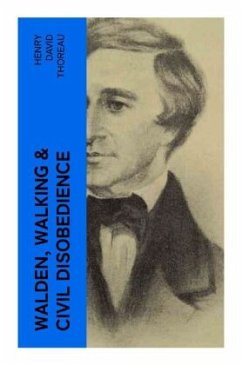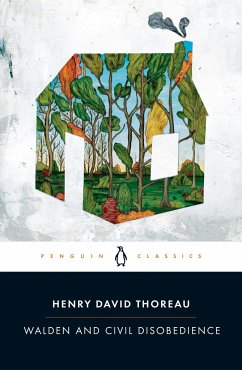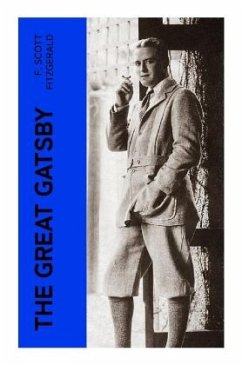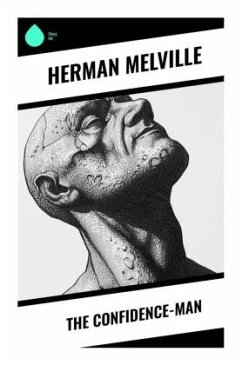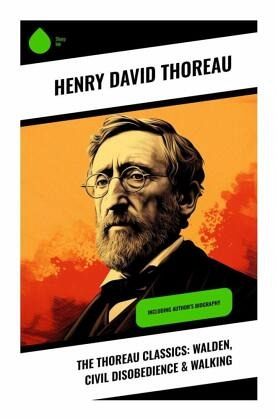
The Thoreau Classics: Walden, Civil Disobedience & Walking
Including Author's Biography

PAYBACK Punkte
0 °P sammeln!
In "The Thoreau Classics: Walden, Civil Disobedience & Walking," Henry David Thoreau synthesizes his profound reflections on nature, society, and individual morality through his distinctive transcendental lens. The collection comprises three seminal essays that explore themes of simplicity, self-reliance, and the moral imperative of dissent against unjust governance. Thoreau's lyrical prose and poignant observations invite readers into a contemplative dialogue, urging them to reclaim their connection to nature and to act upon their convictions with courage. Set against the backdrop of 19th-cen...
In "The Thoreau Classics: Walden, Civil Disobedience & Walking," Henry David Thoreau synthesizes his profound reflections on nature, society, and individual morality through his distinctive transcendental lens. The collection comprises three seminal essays that explore themes of simplicity, self-reliance, and the moral imperative of dissent against unjust governance. Thoreau's lyrical prose and poignant observations invite readers into a contemplative dialogue, urging them to reclaim their connection to nature and to act upon their convictions with courage. Set against the backdrop of 19th-century America, his work resonates with the Romantic ideals of the era, merging philosophy with practical activism in a manner that remains relevant today. Henry David Thoreau (1817-1862), a leading figure of American transcendentalism, drew inspiration from his experiences living in solitude at Walden Pond. His philosophical inquiries were influenced by his interactions with contemporaries such as Ralph Waldo Emerson, as well as his deep-seated appreciation for natural landscapes. Thoreau's commitment to social justice, exemplified by his refusal to pay taxes in protest of slavery and the Mexican-American War, underscores the radical context of "Civil Disobedience," advocating for moral agency in the face of government opposition. This collection is a must-read for anyone seeking insights on environmentalism and ethical resistance. Thoreau's timeless wisdom challenges readers to reflect on their own lives and the broader societal implications of their actions. Engaging both the philosophically inclined and the environmentally conscious, "The Thoreau Classics" offers invaluable lessons on living authentically, fostering a connection with nature, and embracing civil engagement.




